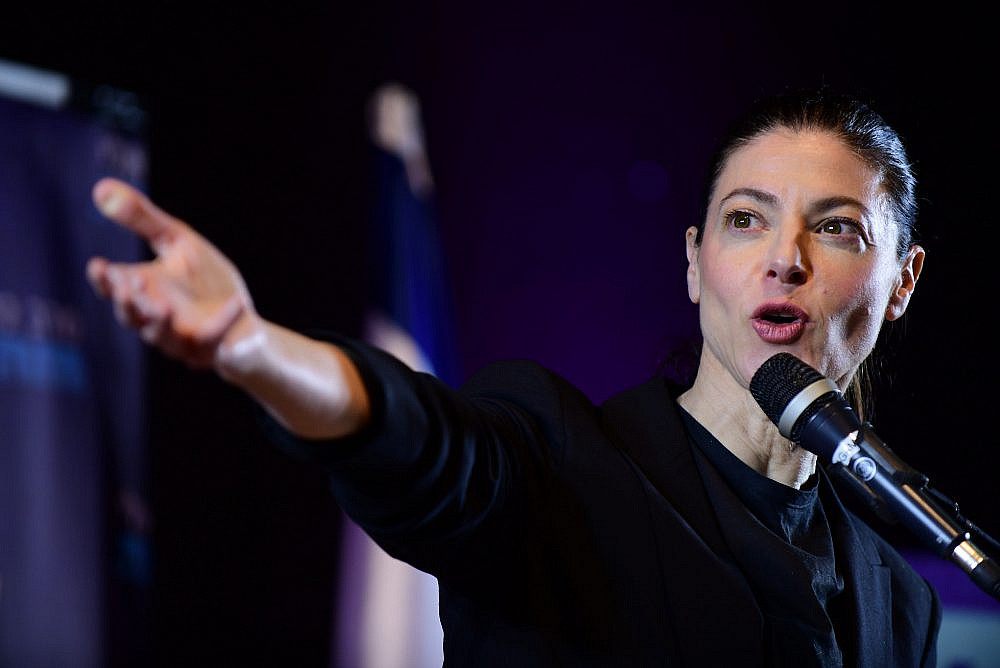Merav Michaeli, the head of Israel’s Labor Party, only wears black. Omer Yankelevitch of Blue and White is suspicious, unqualified, and undeserving of office. Tamar Zandberg of Meretz is childish and dresses inappropriately. Shelly Yachimovitch, when she entered politics in the 2000s, was obsessed over by the media for straightening her hair — so much so that it became a famous bit in the Israeli satire show “Eretz Nehederet.”
The sexist discourse around women politicians’ appearances is one of the most overt forms of prejudice among voters and the media, including in Israel. Indeed, the ways in which women candidates are persistently undermined as viable and legitimate politicians, regardless of their political background, is very insidious. The current Israeli election is no different.
According to Dr. Nicole Bauer, a political scientist and communications professor at Louisiana State University, the thinking process that voters use to evaluate women candidates is very different from the one they apply to men. Voters first consider how the woman candidate compares to what they perceive to be the “typical woman” — an image that associates women with traits such as caring, emotions, conflict avoidance, and social roles viewed as incompatible with public office.
Because of this perception, voters assume that women candidates only need to meet a minimal standard of skill to show that, relative to women in general, they are capable of entering politics. At the same time, though, voters continue to view masculine traits as more fitting for public office, and will subsequently evaluate men candidates as more capable of being political leaders.

Falling back on gender stereotypes
It is a widely acknowledged pattern that women who choose to run for political office are often more professionally qualified than many of the men candidates they are competing against. Indeed, recent research shows that far from shying away from self-promotion, women candidates regularly advertise their qualifications and experiences for political office through their online platforms even more than their male colleagues do.
And yet, there remains a vast information gap: the public still tends to know less about women political candidates, which causes voters to believe that most women candidates are unfit for office.
This is particularly problematic in Israel as party lists are increasingly determined by a small “selectorate” of individual party leaders, the majority of whom tend to be men. Evidence suggests that even when party selectors actively incorporate women candidates into higher positions on the party lists, their placements appear to have little effect on Israeli voters’ evaluation of their qualifications.
Moreover, the high turnover rates in Israeli politics, the constant reshuffling of parties, and election fatigue means that voters are likely to rely on pre-existing assumptions to judge the parties and their candidates. And if little information is known or available about a particular party member, voters are likely to rely on gendered stereotypes to evaluate them.
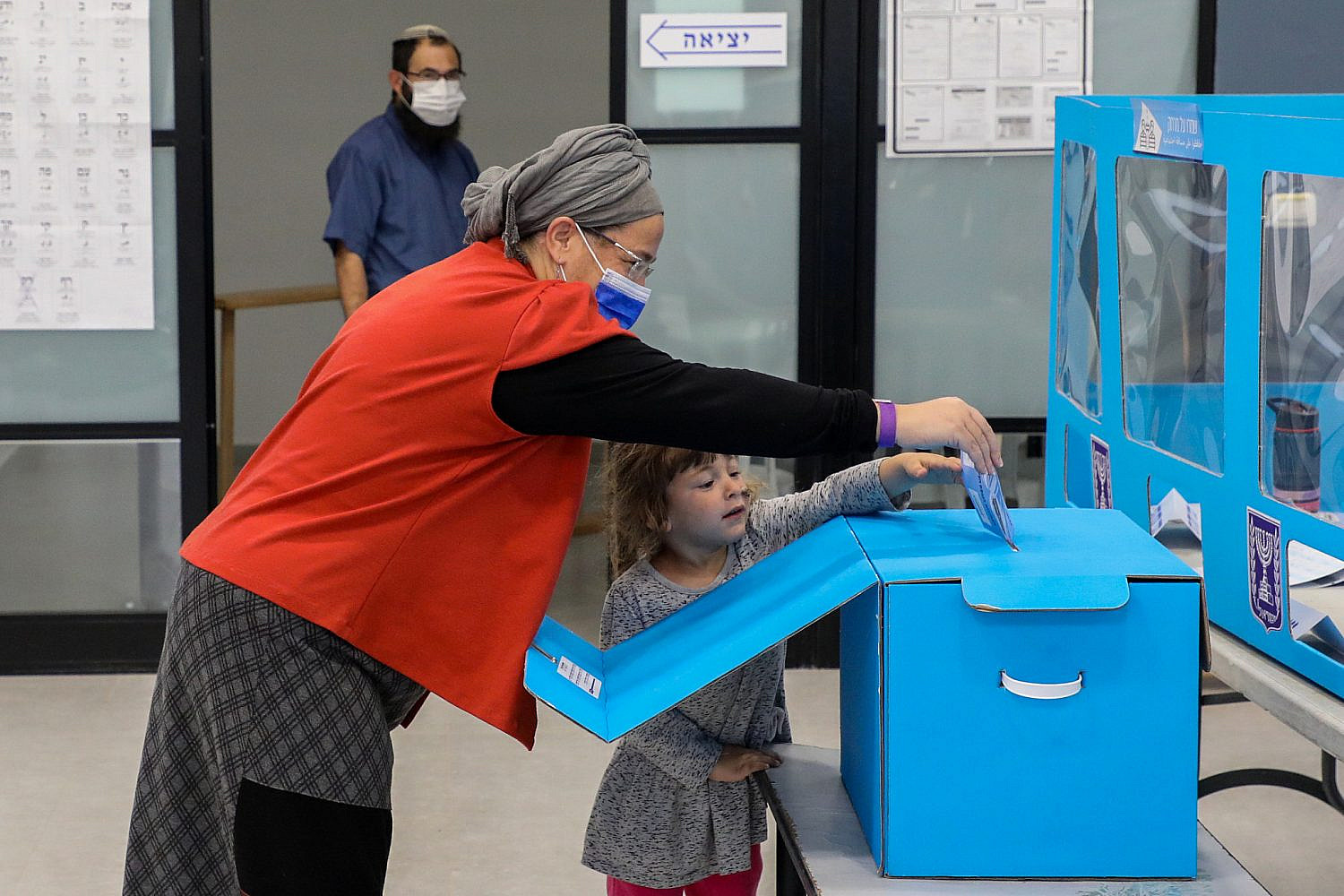
The result is that men candidates emerging from hypermasculine professions, such as the military, disproportionately benefit from a lack of information about them; Benny Gantz, the former army chief and current leader of the Blue and White party, is a notorious example of this. A lack of information about female candidates, in contrast, leads voters to associate them with feminine traits that are deemed unsuitable for political office.
Biased media coverage
Because of these skewed dynamics, women candidates rely on high visibility and effective dissemination of information to address gendered bias. Labor’s Merav Michaeli, for example, has over the years been releasing weekly videos on her Facebook page reporting on her legislative activities and providing commentary on political events.
Such individual efforts, however, still have to face a media landscape that plays an outsized role in informing the public about politicians — and in reinforcing gender stereotypes. Studies on media coverage found that news outlets report significantly less on women candidates than men candidates. In addition, coverage of men candidates is more likely to focus on their political experience and professional qualifications, further portraying men in general as more fit for public office.
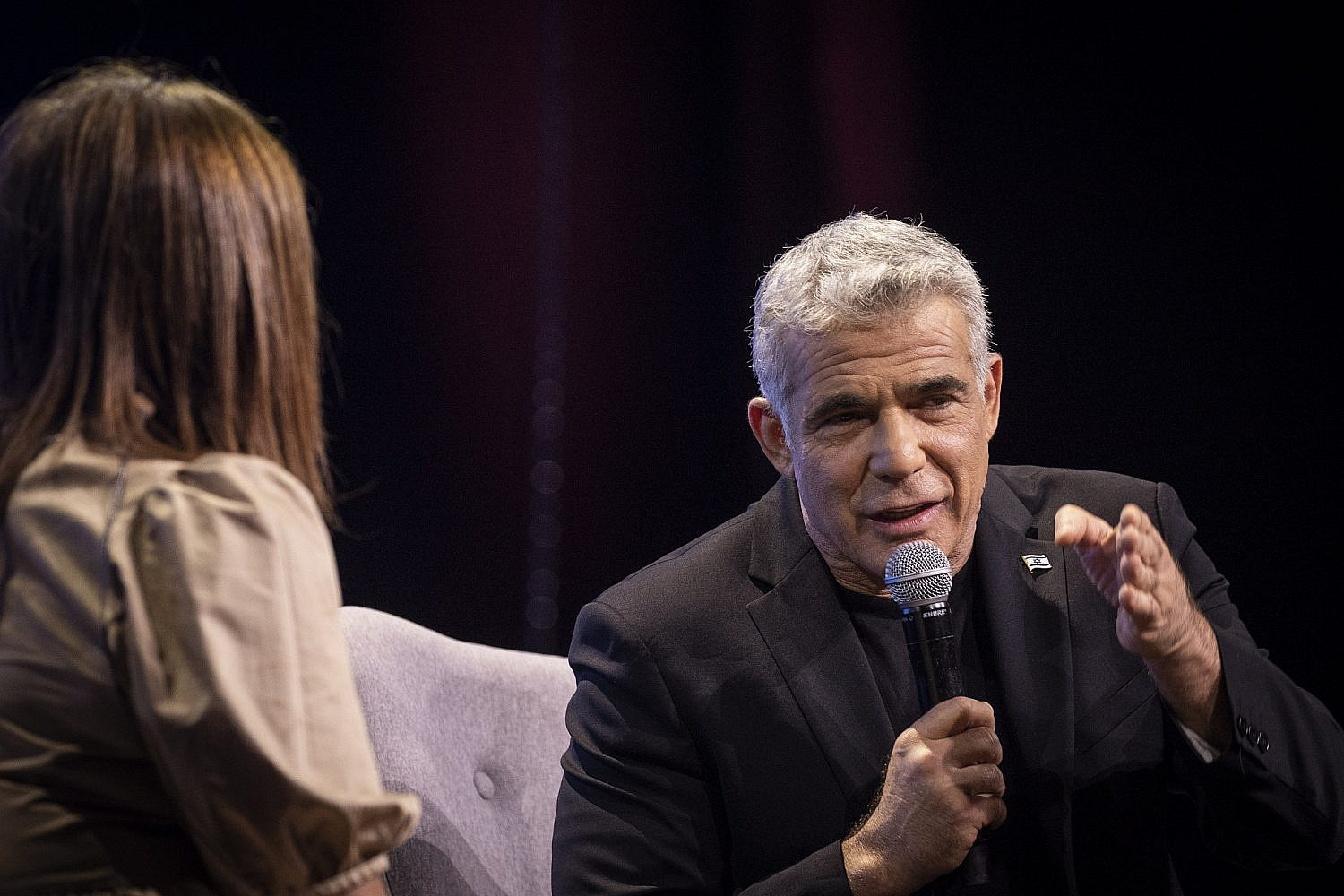
Although there appears to be a slight decline in sexist media coverage of women candidates’ physical appearances, Prof. Greenwald and Prof. Lehman-Wilzig found that, compared to the United States, the Israeli media is “significantly more gender-biased in challenging the candidate’s overall experience, and therefore electability.” Voters are thus primed to view women through a highly gendered lens, focusing more on their associations as carers, mothers, or wives rather than their qualifications for office.
Feeding into this, television broadcasters more often invite women politicians to comment on “women’s issues” or “feminine policy issues,” like gender based violence and family and parental status, than on general political matters. Women candidates may get feature stories in women’s publications — such as At Magazine in Israel — but will rarely receive longform pieces in major news outlets.
Affirming this trend, a recent study commissioned by the Israel Women’s Network found that in the weeks leading up to the current Israeli election, women politicians have had few media appearances; approximately 90 percent of politicians featured across Israeli television channels and radio stations were men.
The 2021 campaign
Given these structural biases, how has the Israeli media been reporting on women candidates who have senior positions in their party lists, and could potentially become ministers in the next government?
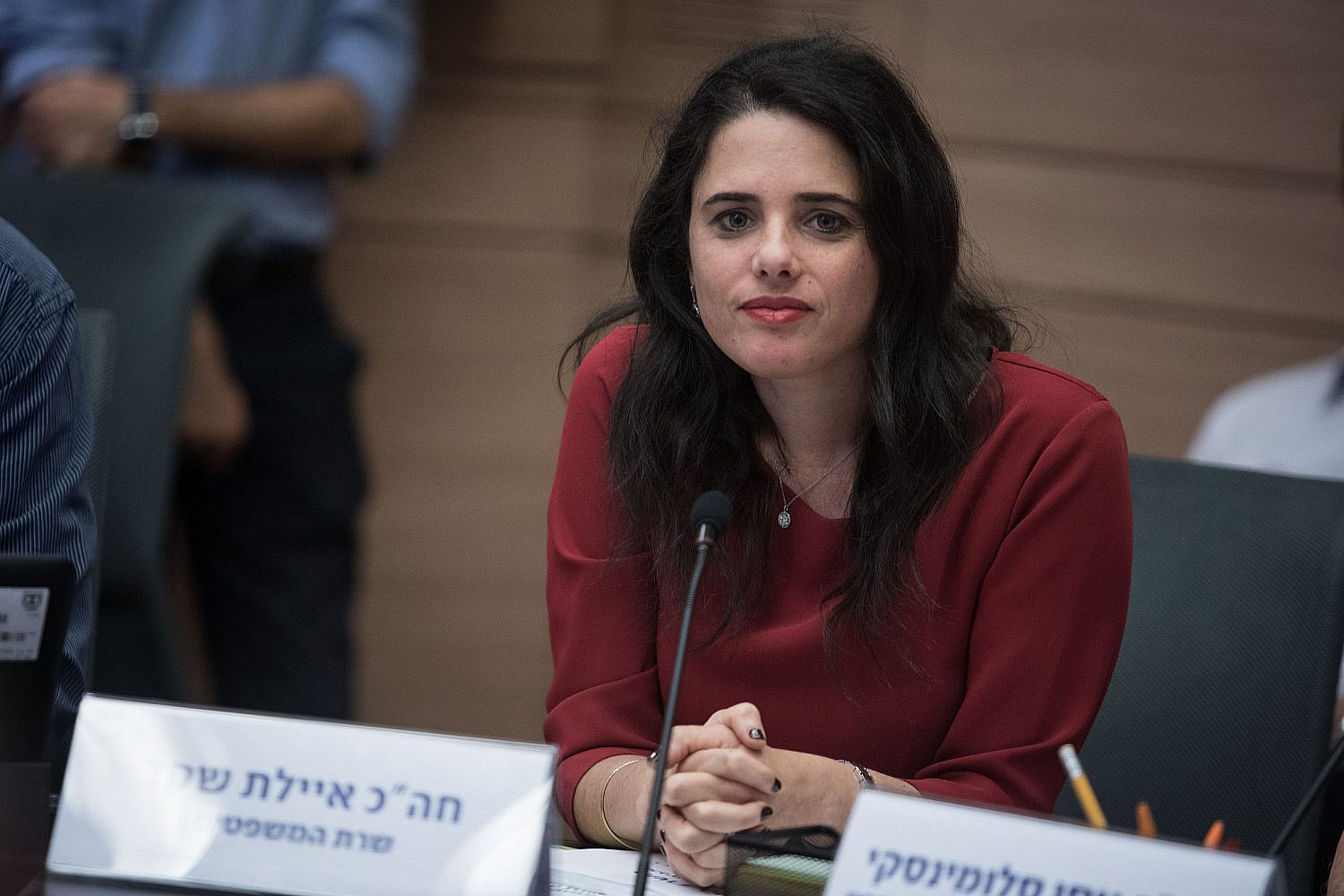
A cursory review of the reporting on incumbent woman politicians suggests that the media has hardly examined the candidates’ legislative and political activities. A leaked video of Ayelet Shaked, a former Justice Minister and current Knesset member with the far-right Yamina party, in which she sang for a project addressing violence against women, garnered more media attention than her campaign messages or her political record.
A recent Haaretz article on Orna Babrivai — who sits in the number two spot on the Yesh Atid party behind Yair Lapid, and who was the first woman to be a Major-General in the Israeli army (the second-highest military rank) — critiques her Moroccan fish soup recipe for being too mild.
Yifat Shasha-Biton, a former Likud member who is now number two in Gideon Sa’ar’s New Hope party, has particularly been a target of media attention in recent months with coverage portraying her as ill-equipped to serve in office. Although she was the chair of the Knesset’s Coronavirus Legislative Committee, Shasha-Biton received prime time television interviews only after Netanyahu derisively accused her of mismanaging the COVID-19 crisis during a radio interview.
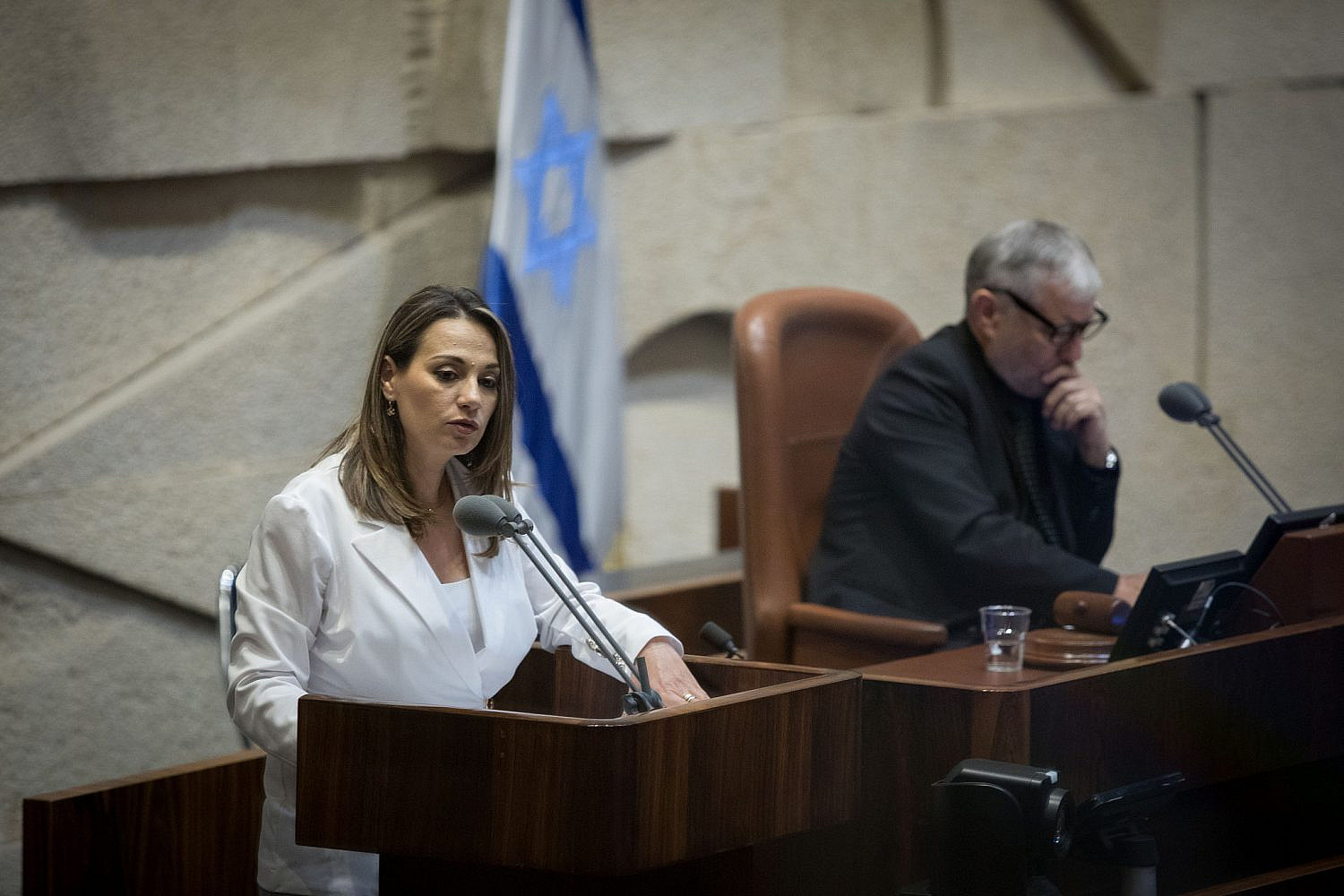
Moreover, rather than discussing Shasha-Biton’s legislative record or her policies as Netanyahu’s former Minister of Housing and Construction, journalists largely reported on her entry into politics under the auspices of Moshe Kahlon in the Kulanu party, and her “betrayal” or “abandoning” of Likud for the New Hope party — as if it were shameful for women politicians to fail to stand by their men party leaders.
This framing of Shasha-Biton’s political career illustrates how reporting on women candidates can often focus more on their relationship to the men who recruited them, rather than the women’s political skillset. This, in turn, reflects how women are often forced to rely on male patronage to enter the political pipeline, and yet are immediately undermined by voters and the media for doing so.
This is as true on the left as it is on the right: Kati Piasecki, who is tenth on the Meretz party list and serves as a Bat Yam local council member, authored an op-ed in January lamenting the lack of recruitment of women in local politics, and affirming that in Israel, political candidacy depends on an individual’s networking rather than organized institutional mechanisms.
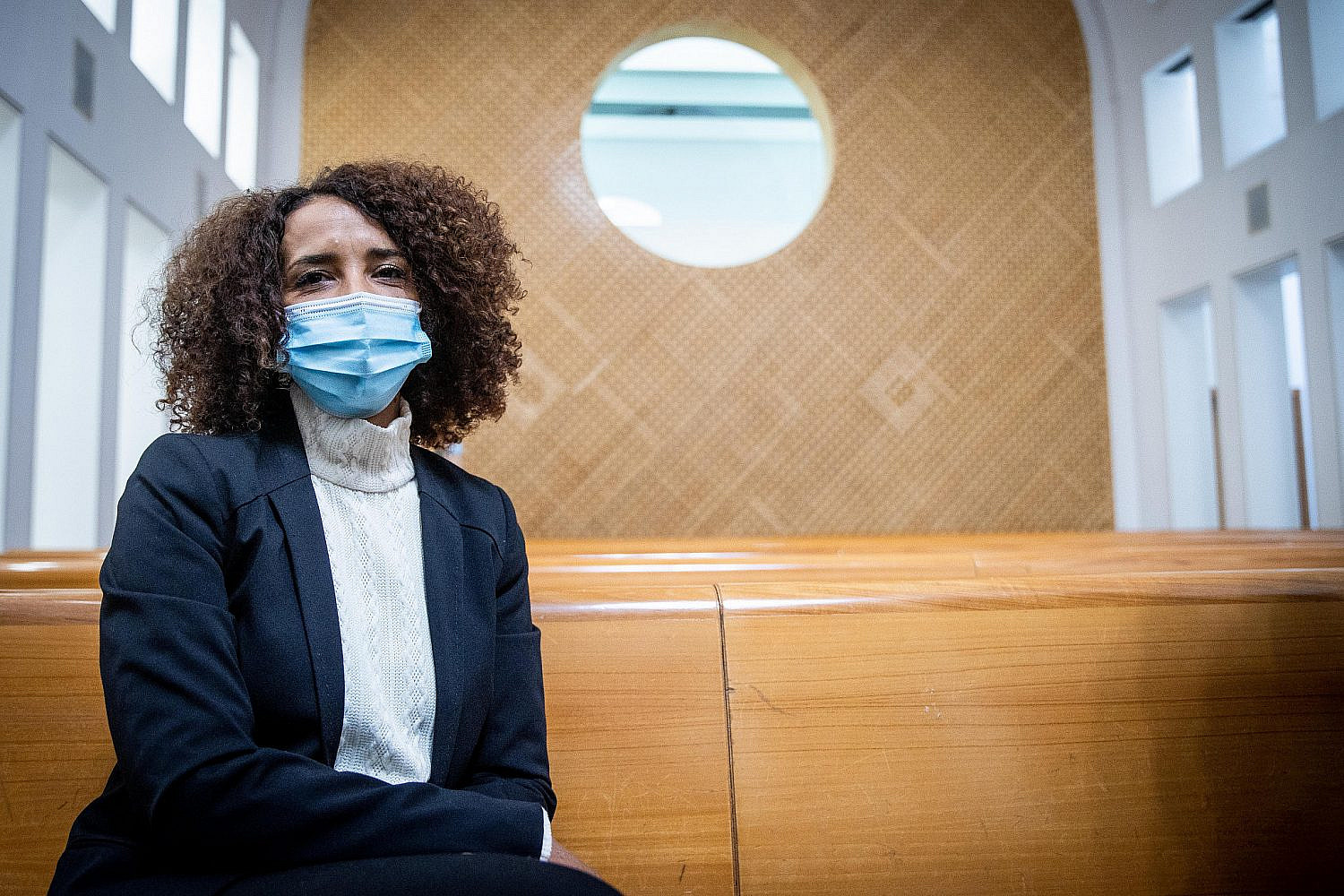
Another common and problematic framing of women politicians is the implication that their presence in public office is not the primary indicator of their political work. Pnina Tamano-Shata, for example, was the first woman of Ethiopian descent to hold a seat in the Israeli legislature in 2013, as part of the Yesh Atid party. She has since held multiple government positions, including as Minister of Aliyah and Integration (Immigration Absorption) — and yet, she is primarily discussed in the media for her advocacy for Ethiopian immigration. This type of media pigeon-holing compounds the intersectional bias Tamano-Shata faces and sidelines her experience in the public discourse.
Palestinian women politicians, meanwhile, are routinely targeted as candidates who should be disqualified from running for office due to statements or political activities that are critical of Israeli government policy and military operations. In this election round, the mantle of the “angry Palestinian woman” deemed unfit for office was Ibtisam Mara’anah, who is seventh on the Labor party’s list and was disqualified by the Knesset Elections Committee before the Supreme Court reinstated her. In the previous election round, that mantle was given to Balad’s Heba Yazbak; and before that, to Haneen Zoabi.
Thus, from right to left, the Israeli media and public still has a long way to go in viewing women as worthy and legitimate candidates for political life. The question is not whether women can handle public office, but whether the media and voters are able to deal with it.

